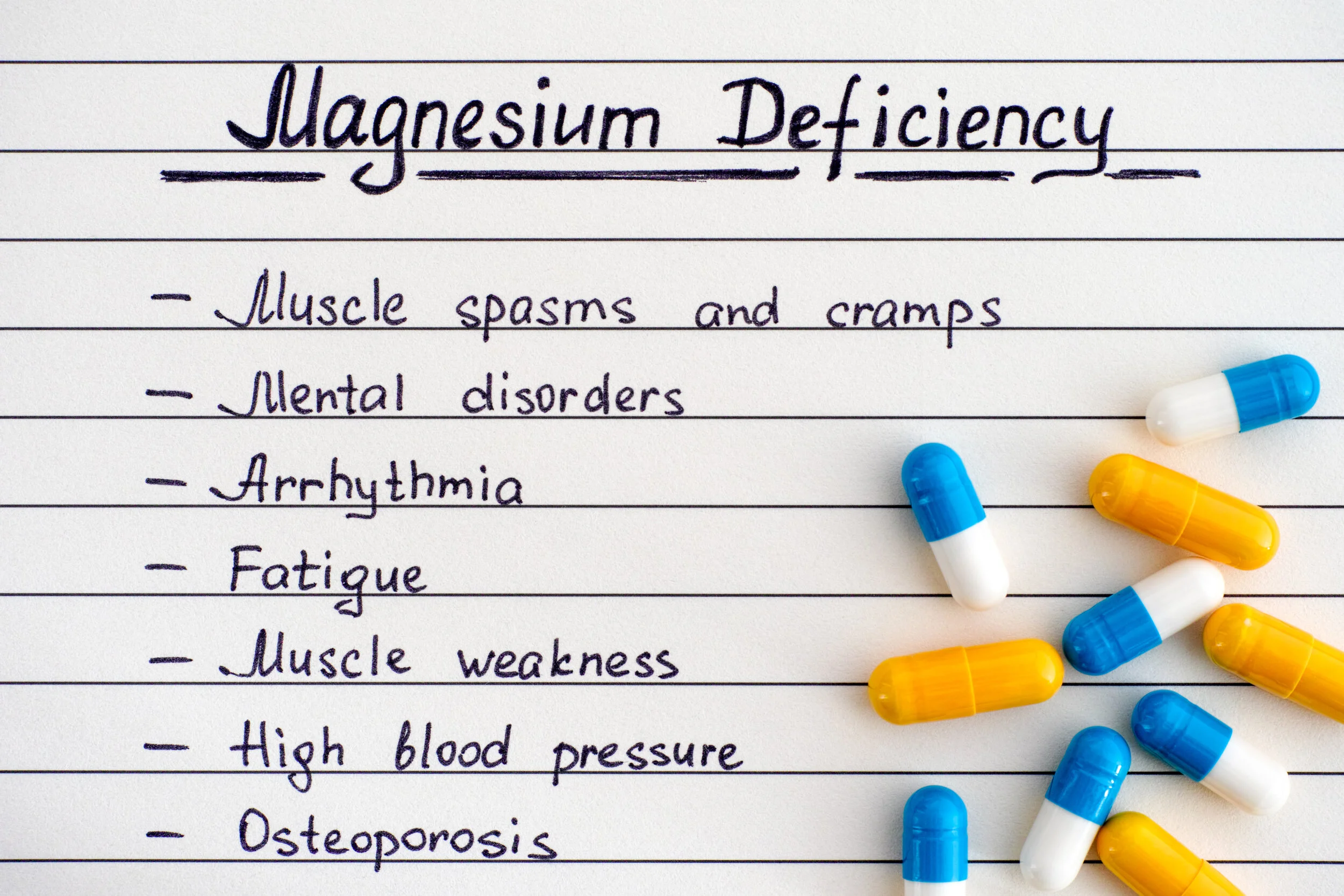Magnesium and why its good for your health!
Magnesium plays several important roles in the health of your body and brain and is the fourth most abundant mineral in the human body.
Magnesium is a mineral found in the earth, sea, plants, animals, and humans.
Round 60% of magnesium in the body is in bone, rest is in bodily fluids, blood, soft tissue, and muscles.
Every cell in your body requires magnesium to function as it acts as a cofactor in the biochemical reactions continuously performed by enzymes. It is involved in more than 600 reactions in your body, including:
Converting food into energy.
Creating new proteins from amino acids.
Creating and repairing DNA and RNA.
Contracting and relaxing of muscles.
Regulating neurotransmitters, which send messages throughout your body including your brain and nervous system.
Magnesium intoxication is rare, but deficiency is very common among the general population, especially in the Western world.
The daily recommended intake is 310–420 mg for adults depending on age and gender. Studies found it is safe at much higher levels and positive effects are found with doses of 125mg/per day right up to the upper limit of 2,500 mg/per day.
Always consult a clinical nutritionist or other health professional before taking any new supplements. Possible side effects of taking too much magnesium include, diarrhea, upset stomach, nausea, vomiting. There are also some exceedingly rare but serious side effects: low blood pressure, irregular heartbeat, mental confusion, changes to breathing.
Magnesium Deficiency Signs and Symptoms.
General: Anxiety, lethargy, weakness, agitation, depression, hyperactivity, headache, irritability, low stress tolerance, loss of appetite, nausea, sleep disorders, impaired athletic performance. Asthma, chronic fatigue syndrome, osteoporosis, hypertension, altered glucose homeostasis.
Musculature: Muscle spasm, cramps in the soles of the feet, leg cramps, facial muscles, masticatory muscles, and calves, carpopedal spasm, back aches, neck pain.
Nerves: Nervousness, increased sensitivity, migraine, depression, poor memory, seizures, tremor, vertigo.
Metabolism: Increased blood triglycerides and cholesterol, decreased glucose tolerance, insulin resistance, increased risk of metabolic syndrome, disturbances of bone and vitamin D metabolism.
Pregnancy: Pregnancy: Pregnancy complications (e.g., miscarriage, premature labour, eclampsia). Contact a Pregnancy Nutritionist for the right diet plan.
Proven Benefits of Magnesium:
Magnesium reduces inflammation and increases immune system function.
Low magnesium levels are associated with chronic inflammation, which increase the risk for chronic disease. Chronic inflammation also decreases immune system function.
Magnesium participates in numerous immune responses in the body. It plays a vital role in counteracting potential damage caused by free radicals to cellular tissues and modulates immune cell function.
Magnesium also plays a critical role in exercise performance.
When exercising your body requires 10–20% more magnesium than when you are resting.
Magnesium assists the body to move blood sugar into your muscles and dispose of lactate, which builds up during exercise and causes muscle soreness and fatigue.
Magnesium is critical to optimal brain function and mood, low magnesium levels are associated with an increased risk of mood disorders and depression.
Other benefits:
· Helps maintain blood pressure
· Helps control blood sugar in people with Type 2 diabetes
· Helps prevent and control migraine headaches
Food Sources
Pumpkin seeds: 262mg per 100g
Spinach: 87mg per 100g
Swiss chard: 81mg per 100g
Dark chocolate (70% cocoa): 176mg per 100g
Almonds: 268mg per 100g
Cashews: 292mg per 100g
Avocado: 29mg per 100g
Salmon: 30mg per 100g
Banana: 27mg per 100g
Supplementation
There are 2 ways to increase your magnesium levels, oral supplements or transdermal (Skin) application.
When taken orally magnesium approximately 24–76% is absorbed in the gut and the rest is eliminated. This type of supplementation can be accompanied by some of the more common side effects of magnesium supplementation like nausea and mild diarrhea. The alternative, transdermal application has nearly 100% absorption without some of the gastrointestinal side effects.
Transdermal application provides a more direct approach by applying the magnesium directly to the skin either as a oil, lotion or by soaking in a magnesium bath. This application style is fantastic for targeting muscle cramps and soreness, as the magnesium cab go directly to them without having to enter the digestive system and avoids the gastrointestinal absorption and the side effects that come with it.
Supplementing orally allows you to be more specific with the dose you are receiving and ingest higher, more therapeutic doses.
Whether you choose oral or transdermal magnesium supplements is a personal choice. The most important thing is to find the option you like and can stick to, so your body is getting the magnesium it needs.
Sometimes the best option is a combination of both, use oral supplement and then for an additional boost, transdermal supplements. Use oils or lotions after your morning shower or before bedtime. Run a bath with magnesium flakes on a lazy Sunday, soak and relax.


